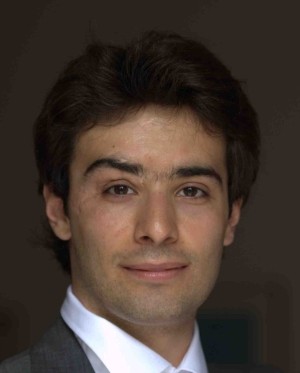Date & time
3 p.m. – 5 p.m.
Fabrizio Baldassarri, Joint Fellow, Villa I Tatti, Harvard University, and Warburg Institute, University of London
This event is free. All are welcome.
514-848-2424 ext. 2500
J.W. McConnell Building
1400 De Maisonneuve Blvd. W.
Room 322
Yes - See details
 Fabrizio Baldassarri
Fabrizio Baldassarri
Abstract: In pre-modern times, discussions of the notion of life gained momentum as a crucial part of any philosophical understanding of nature. The question about the life of plants was particularly dramatic, for vegetal bodies stood in between non-living and living beings, somehow disclosing the boundary and providing an intermediary step between realms. Following Aristotelianism scala naturae, Scholastic natural philosophers played a major role in defining vegetation by means of the vegetative soul. But do plants only vegetate? Are these activities enough to ground a sound definition of plants and plant life? Debates on this notion have shaped pre-modern times at large.
In this context, mechanical natural philosophers tried to elaborate a very alternative interpretation, consistent with the reduction of nature to machines or automata. The case of René Descartes's philosophy is a clear example of this attempt. Yet, following a main trend developing in the Renaissance, Descartes seemed to use plants as models to explain a few complex operations of animal life, but in this way he made plant life dissolve.
In this lecture, Fabrizio Baldassarri will examine Descartes's interpretation of plants as a case study of the mechanistic attempt to define plant activities, life, and behaviour, highlighting the key aspects of his interpretations as well as the major shortcomings. Then, he will discuss a few cases of Cartesian proponents or followers, who pursued a mechanical interpretation of plant life, such as Regius, Schuyl, Malebranche and Clauberg, and will ultimately deal with a few cases of German and Italian naturalists who proposed a mechanical account of plant life.
Fabrizio Baldassarri is a historian of science with an expertise on French philosopher René Descartes, natural philosophy and medicine. With a 3-year Marie Skłodowska-Curie fellowship, he has recently focussed on the study of plants in early modern natural philosophy, and its intersections with plant anatomy, medicine, and plant classification. He has widely published on Descartes, and on plant studies in medicine, philosophy, and botany in pre-modern science. He has an upcoming book on plants in early modern philosophy and science.
© Concordia University